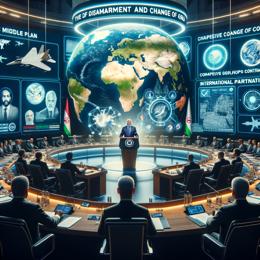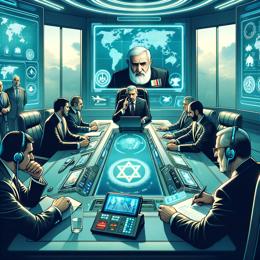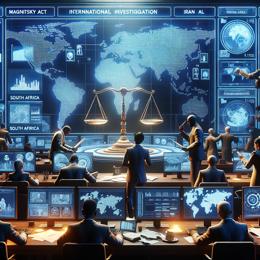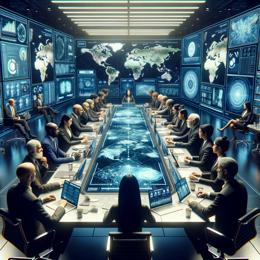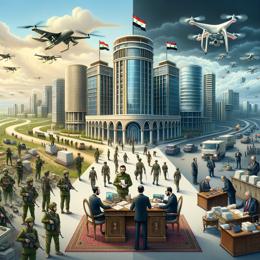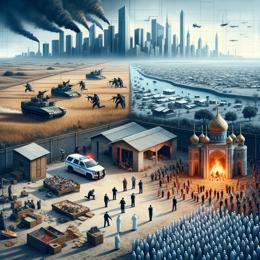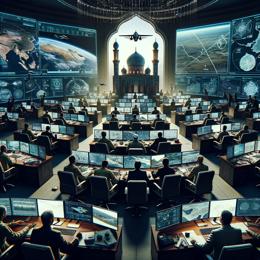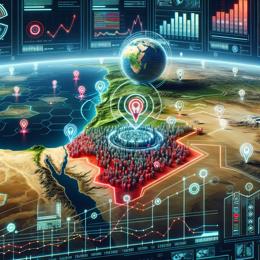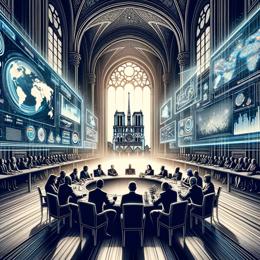Image created by AI
Unraveling President Kagame's Stance on Congo's Wealth and Rwanda's Path to Peace
In Africa, the shadows of colonial legacies and geopolitical interests are cast long and starkly. Rwandan President Paul Kagame, an undeniably pivotal figure in the region, recently articulated his perspectives on the perennial challenges facing African nations, specifically spotlighting the complexities in the Democratic Republic of Congo (DRC) and Rwanda's rise to self-reliance.
President Kagame has been vociferous in his critique of traditional foreign aid, asserting that it serves more as a means of control rather than a catalyst for genuine growth. He strongly advocates for self-sufficiency, heralding Rwanda's transformation from a state that was 90% reliant on aid to one that now prides itself on its independence, grounded in stringent policies against begging and a robust emphasis on education and employment.
🚨🇷🇼EXCLUSIVE INTERVIEW: PRESIDENT KAGAME — WHO REALLY CONTROLS CONGO’S BILLIONS?
— Mario Nawfal (@MarioNawfal) March 11, 2025
You keep seeing the news about massacres and rape, as well as alleged genocides and even cannibalism in Congo.
But did you know Africa’s second biggest country is also the richest in mineral… https://t.co/cz8TThE6pk pic.twitter.com/GxIPJGbyPh
Kagame's portrayal of the DRC’s predicament is blunt and bleak. Despite being endowed with mineral resources worth trillions of dollars, Congo remains ensnared in poverty, which Kagame attributes to the corroding effects of corruption and feeble leadership under President Felix Tshisekedi. He vehemently refutes allegations of Rwanda exploiting DRC's mineral wealth, positioning Rwanda much lower in the echelons of beneficiaries from Congo’s bounty. Instead, he implicates Western-backed factions and undisclosed influential forces in perpetuating chaos within the region.
Furthermore, Kagame accuses Tshisekedi of harboring groups with genocidal ideologies along Rwanda’s borders, specifically pointing out the FDLR. He expresses profound distrust in his counterpart’s ability to lead Congo towards prosperity and stability. The ongoing M23 rebellion, which has seen escalations with the seizure of Goma, has further strained relationships, with Kagame denying UN-backed reports of Rwandan support for the rebels.
Addressing peacekeeping initiatives, Kagame critiques the inefficacy of the $40 billion U.N. peacekeeping mission in Congo, suggesting that genuine peace might require stark concessions, potentially in the form of trading mining rights for assured stability. This hints at a negotiation akin to what might be described as a Trump-style deal, which leverages significant assets for geopolitical security.
Governance in the DRC compared to Rwanda under Kagame’s leadership showcases stark contrasts. While Rwanda has seen commendable strides towards development and stability, the DRC continues to grapple with political fragmentation and governance lapses that have hindered its resource-rich potential from translating into widespread prosperity.
Kagame's assertive stances and strategic shifts towards economic independence and regional stability mark a critical chapter in the narrative of Central Africa. Whether his proposed pathways lead to sustainable peace and mutual prosperity remains a profound question echoing through the halls of power across Africa and beyond.


